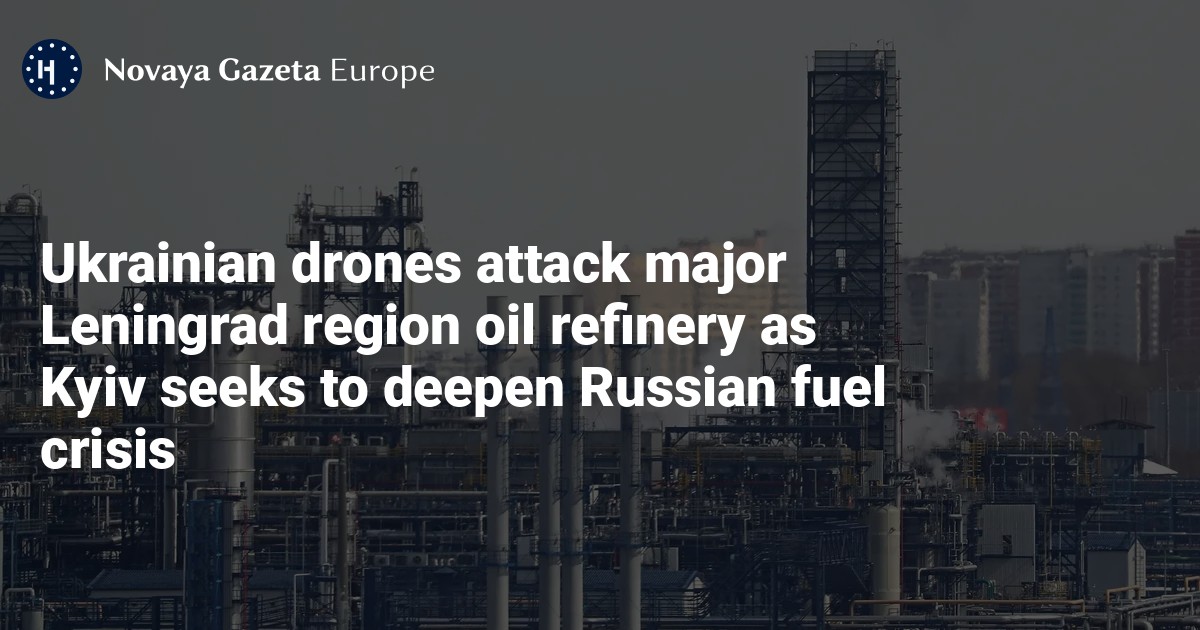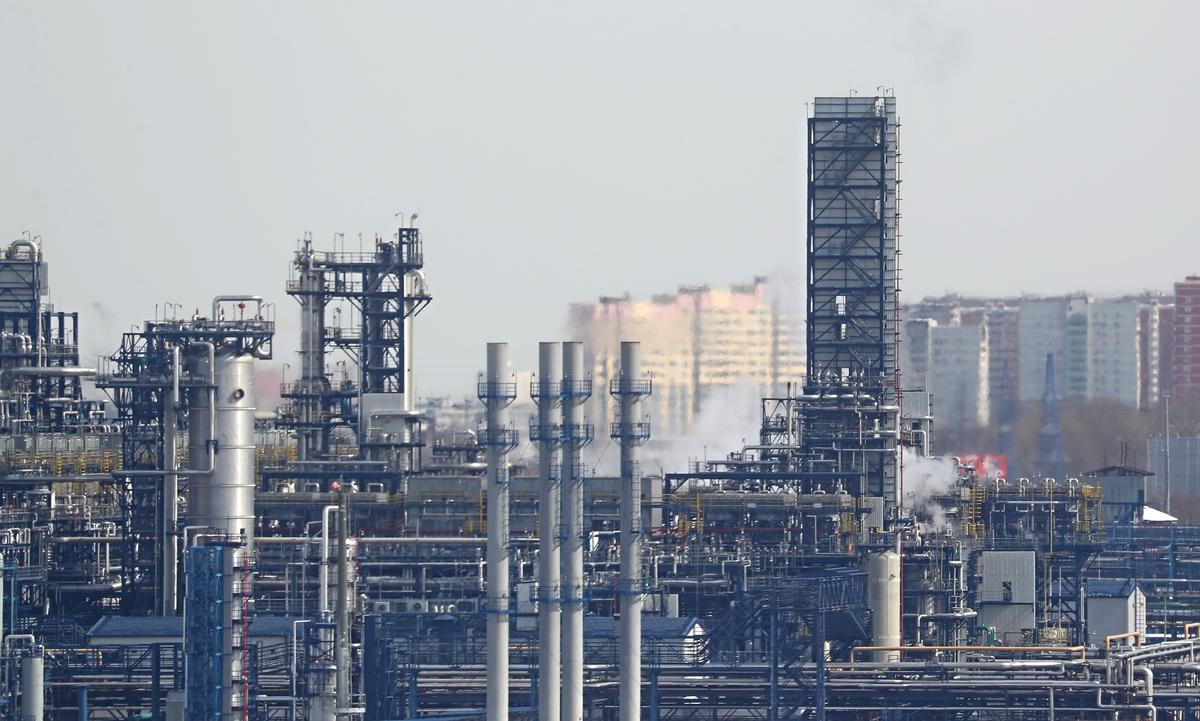



The Gazpromneft refinery in Moscow, Russia, 4 April 2022. Photo: EPA/MAXIM SHIPENKOV
Ukrainian drones attacked a major oil refinery in Russia’s northwestern Leningrad region overnight on Friday, causing a fire to break out that was later extinguished, both the Russian authorities and the Ukrainian military said on Saturday.
The Kirishi refinery, one of Russia’s largest, has been targeted by Ukrainian drones on at least two other occasions this year, in March and September.
On Friday, Leningrad region Governor Alexander Drozdenko announced that a fire “in an industrial zone” had been extinguished by local firefighters, before adding that at least seven Ukrainian drones had been shot down by regional Russian air defence systems.
Overnight, military analysis Telegram channel Supernova posted videos that appeared to show a large explosion and flames coming from the Kirishi plant.
The General Staff of the Armed Forces of Ukraine confirmed on Saturday that it had targeted the Kirishi refinery and said that there had been explosions and a fire at the site, though the full results of the attack were still being assessed.
“The Armed Forces of Ukraine are continuing their systematic campaign to destroy Russian military facilities and weaken Russia’s military and economic potential, particularly in the areas of logistics, fuel and oil supplies, ammunition and weapons,” the General Staff statement said.
The Russian Defence Ministry reported on Saturday morning that 117 Ukrainian drones had been intercepted and destroyed overnight on Friday, including six over the Leningrad region.
The Kirishi plant, which is located some 800km from the Ukrainian border, refined 17.5 million tons of oil in 2024, 6.6% of Russia’s annual oil refining volume last year, according to Reuters.
The attack comes as Russia continues to grapple with its worst fuel shortages in years, largely driven by Ukrainian drones knocking out around 17% of the country’s refining capacity since August.
As a result of the disruptions, gasoline prices have spiralled, forcing the Kremlin to implement petrol export bans, seek fuel supplies from Belarus, and, most recently, declare a diesel export ban until the end of 2026.

